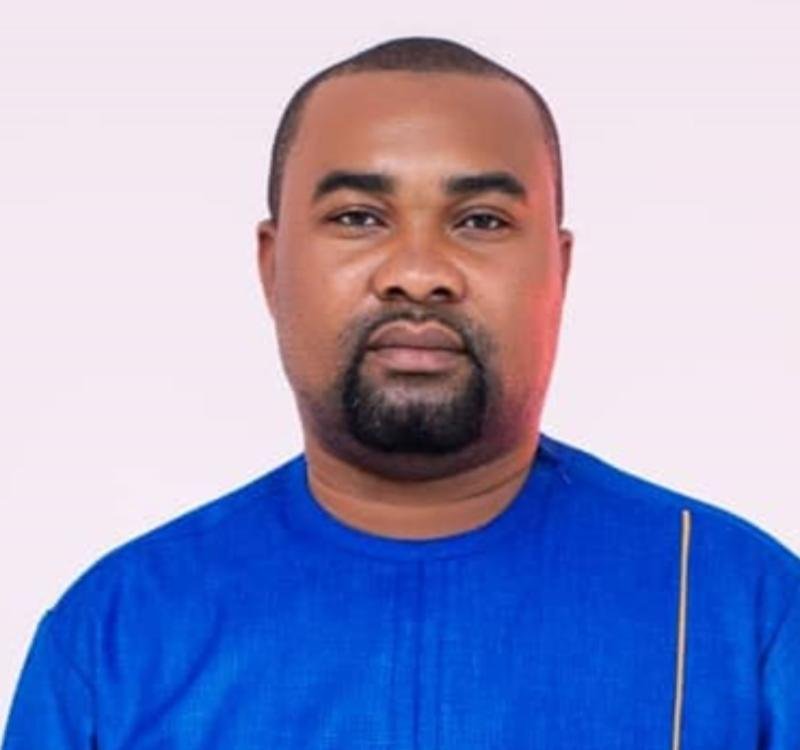A political historian at the Kwame Nkrumah University of Science and Technology (KNUST), Professor Samuel Adu Gyamfi, has clarified that recent remarks by former Assin Central MP and 2024 NPP presidential aspirant, Kennedy Ohene Agyapong, were not intended to divide the New Patriotic Party (NPP) but rather to prompt deep introspection as the party strategizes for a strong comeback in the 2028 general elections.
In an interview on *BOHOBIO LIVE ON HELLO 101.5 FM WITH Samuel Joachim Bokeem,* Prof. Adu Gyamfi noted that Mr. Agyapong’s statements—calling for fairness, realism, and strategic thinking in the selection of the NPP’s next presidential candidate should be seen as a genuine plea to ensure that the party remains electorally viable and credible in opposition.
“Ken did not insult anyone or cast aspersions. His comments were deeply rooted in historical reasoning,” Prof. Gyamfi asserted, adding that Mr. Agyapong grounded his concerns in the party’s leadership evolution and electoral history.
Learning from the past
Using historical precedents to contextualize Agyapong’s plea, Prof. Gyamfi recalled the pivotal role of Prof. Albert Adu-Boahen in Ghana’s return to multiparty democracy in the early 1990s.
“It is trite knowledge that Adu-Boahen broke the culture of silence under Rawlings’ rule,” he said. “During the NPP’s early years, the party rallied behind him to lead the opposition in the 1992 presidential election.”
Although Prof. Adu-Boahen gained about 31% of the vote in 1992 against Jerry John Rawlings, he was not re-nominated. According to Prof. Gyamfi, this was a realistic move by the NPP, considering the electoral terrain and his performance.
“The NPP made a pragmatic choice. After Adu-Boahen’s loss, the party did not field him again—not because he wasn’t capable but because the circumstances demanded fresh strategy and appeal,” he explained.
Prof. Gyamfi further recalled how the NPP responded to alleged irregularities in the 1992 polls with the publication of The Stolen Verdict, which chronicled various electoral anomalies, including flawed voter registers and opaque ballot boxes. The party’s boycott of the subsequent parliamentary elections led to a one-party Parliament under the NDC—a situation that triggered significant electoral reforms.
Calculated decisions
Turning to former President John Agyekum Kufuor, Prof. Gyamfi highlighted how the NPP gave him a second chance after an earlier defeat because of his strong performance in internal contests.
“In the 1996 primaries, Kufuor’s showing was remarkable, despite not winning in 1992. His 16.5% in the presidential election seemed small, but the internal dynamics and his rising popularity warranted another chance,” he said.
Prof. Gyamfi described the party’s internal democracy as one that allows divergent views and frank debate. However, he warned that intimidation or suppression of alternative perspectives could erode the party’s electoral fortunes.
Dr. Bawumia’s candidacy
On former Vice President Dr. Mahamudu Bawumia, the 2024 NPP flagbearer, Prof. Gyamfi said his performance in the North—his home region should prompt honest analysis within the party.
“We need to ask ourselves, how did Bawumia fare in his own backyard? History shows that his influence in the North has not been as solid as expected,” he said, suggesting that regional appeal and national influence must factor into future leadership decisions.
Akufo-Addo’s endurance
Prof. Gyamfi also reflected on President Nana Addo Dankwa Akufo-Addo’s three-time presidential bid, which eventually led to his victory in 2016.
“In 2008, he got 49.3%—just shy of a win. In 2012, many believed he was cheated, yet he accepted the Supreme Court verdict with grace. His performance across the regions improved consistently, which justified the party’s faith in him,” he said.
According to Prof. Gyamfi, the decision to back Nana Addo three times was not about entitlement, but rather a calculated move based on data and public sentiment.
Road to 2028
Prof. Gyamfi emphasized the need for a level playing field as the party prepares to choose its next leader. He cautioned against bias and urged the NPP to embrace realism in selecting someone with broad-based appeal and electoral strength.
“Ghanaian voters are discerning. We need leaders with credibility, influence, and a clear vision. As the NPP reorganizes, it must prioritize unity, fairness, and honest evaluation of its options. NPP cannot afford to gamble with its future,” he warned.
The political historian further reiterated that Kennedy Agyapong’s comments should not be misinterpreted as divisive, but rather as a sincere effort to protect the soul of the party and position it for victory in 2028.
Profile of Professor Samuel Adu-Gyamfi
Professor Samuel Adu-Gyamfi is an Applied Historian at the Kwame Nkrumah University of Science and Technology (KNUST). He is the former Head of the Department of History and Political Studies and currently serves as the Vice Dean of the Faculty of Social Sciences in the College of Humanities and Social Sciences at KNUST.
His research focuses on Applied History, particularly the social studies of health and medicine in Africa. Through this lens, he seeks to illuminate contemporary challenges and decision-making processes by drawing on historical precedents and analogues. Beginning with a current dilemma or policy choice, Prof. Adu-Gyamfi brings in a historical perspective to provide deeper insights.
His ongoing research interests span the applied history of epidemics and pandemics, education, politics, security, and development in Africa—especially Ghana. In response to what historian Niall Ferguson terms the “history deficit” in policymaking, he engages in research and teaching in areas such as the History of Health Policy, History of Medicine in Africa, History of Science and Technology, Asante-British Relations in the Nineteenth Century, Modern Ghanaian History, and Modern Chinese History—with a particular emphasis on China-Africa relations in politics and development.
Prof. Adu-Gyamfi is also an active public historian and regular discussant on both television and radio. His interdisciplinary interests intersect history, culture, politics, and development.
His advocacy is deeply informed by two Christian philosophical constructs: kenosis (self-emptying) and paideia (the pursuit of true knowledge through a Christ-like disposition). He interprets these values within indigenous and cultural contexts to guide his academic and public engagements.
Dedicated to nurturing a "New African Consciousness" in a globalized world, Prof. Adu-Gyamfi is committed to liberating the African mind through historical reflection, cultural reawakening, and prophetic ethics—what he calls the proclamation of the Divine as the redeemer of the oppressed. Through this framework, he gives voice to the socio-economic and political aspirations of African communities on the continent and in the diaspora, advocating for a true knowledge revolution and meaningful transformation.








